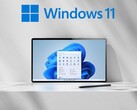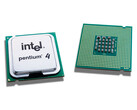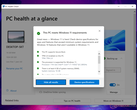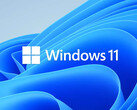Update 10/12:
Wccftech has received specific dates for the update rollout. The L3 cache latency issue will be fixed by Microsoft via a Windows Update scheduled for 10/19. AMD will follow suit with a CPPC2 driver power profile update on 10/21.
AMD has apparently finished creating the updated CPPC2 driver package and said that it can share it with customers directly upon request before 10/21 if needed.
Original article:
Windows 11 just went GA a couple of days ago, but one issue that has been plaguing AMD Ryzen users ever since the OS's Insider preview build is poor L3 cache performance. It looks like AMD and Microsoft have finally acknowledged this issue and have assured that a fix is indeed in the works.
According to AMD, Ryzen processors that have been listed as compatible with Windows 11 have been found to have increased L3 cache latency. Many users have been complaining on various forums about this issue ever since Microsoft dropped the first Windows 11 Insider Preview build, but the problem remained unaddressed till date. Until this official acknowledgement, Microsoft did not even list this as a known issue in each build's release notes.
Having a high L3 cache latency can impact programs that are very dependent on memory access times. Gaming, for instance, can be impacted a lot leading to anywhere between a 10-20% reduction in fps compared to corresponding tests on Intel platforms.
Thankfully though, Microsoft will be releasing a Windows update this month to address the same. It may be noted that the new Dev channel builds of Windows 11 that are ahead of the public release do not have this bug. So, it is likely that Microsoft will be backporting some of that code in an upcoming cumulative update for the current public release branch.
AMD also notes that the CPPC2 feature may not automatically assign threads to the processor's fastest core, thus affecting single-threaded apps. CPPC2 stands for Collaborative Processor Performance Control is basically an ACPI 6.2 spec that allows the CPU's power management to work with OS power management to allow for core ranking. In case of AMD, each core is ranked roughly 3% apart to let Windows decide which core is the fastest.
Apparently, the public release of Windows 11 impacts the functionality of CPPC2 in a way that single-threaded apps suffer a performance hit. AMD notes that the performance impact is more pronounced in CPUs with more than eight cores and above 65 W TDP, which basically means all the 12-core and 16-core Ryzens and all Threadrippers and EPYCs.
AMD said that an update to address this issue will be made available this month. Most likely, AMD will be issuing new chipset drivers with an updated Ryzen power plan that rectifies this issue.
It is good to see both Microsoft and AMD finally acknowledging this problem. Windows 11 is a requirement to ensure proper scheduling with Intel's upcoming Alder Lake processors, so AMD processors taking a performance hit puts them at an unfair disadvantage in comparative benchmarks.
That being said, AMD Ryzen processors are perfectly usable in current Windows 11 builds. But any untoward performance hit is not acceptable so if you are very particular about that, it's best to remain on Windows 10 for a while.
We did our own testing of L3 cache performance on an AMD Ryzen 7 5800X using AIDA64's cache and memory benchmark and the results can be seen below. Note the particularly low L3 read/write speeds and high L3 cache latency in Windows 11 compared to Windows 10. We will once again test cache performance after the fixes have been deployed and see if they do solve the problem.























